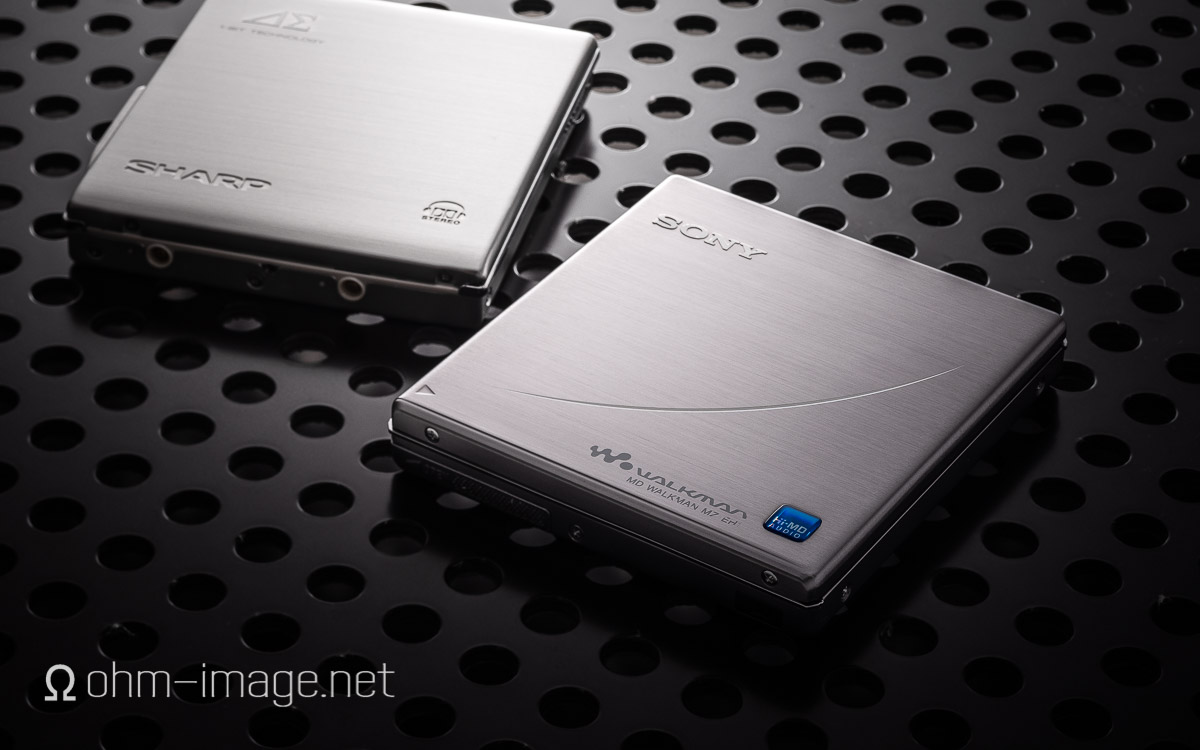Disclaimer: This bad boy is from Amazon.jp. The MD-DR7 was Sharp’s first 1-Bit branded MD portable recorder. It was also the first mass-marketed portable audio product with a true balanced headphone output. Eat your heart out, Astell & Kern, HiFiman, and the like. The DR7 uses the same TRRS pinout as a modern Astell & Kern, but in 3,5mm rather than 2,5mm form. So, if you have a pair of AK-compatible balanced headphones, all you need is a step up (2,5mm - 3,5mm) adapter and you’re gold. The DR7 has a low noise floor, high DR, and for its time, a powerful headphone amp. If you’re interested, check out Minidisc.org’s page on it: Sharp MD-DR7.
From late 2002 until around 2004 headlines among the MD faithful were awash with an age-old war. The perennial battle between Sony and Sharp over ATRAC and dominance over the minidisc scene was in its final heat (as was the format). In a gambit to remain relevant, Sharp and Sony lead insane marketing campaigns which promised the world from their respective flagship MD products. If you were in the Sharp camp, Sony sounded bad. If you were in the Sony camp, Sharp sounded bad. But gosh, how wrong one camp was.
Read more








